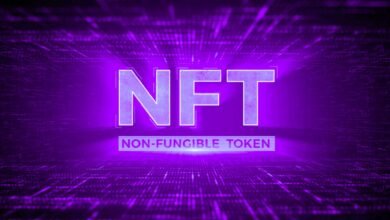
First, knowing what is the smart contract. It is a self-Generated, Self-executing program that streamlines the steps that are required for the fulfillment of any sort of contract or agreement. The transactions once made are irrevocable and discernible after they are moved to the finished process.
Without the requirement of a centralized governing body, any legal system, or an external enforcement process, smart contracts empower trusted transactions and agreements that are to be made between any of the fragmented anonymized parties.
Although blockchain technology is now primarily envisioned as the foundation for the king of cryptocurrency, better termed Bitcoin. It has advanced well beyond supporting Digital currency. Smart contracts are a key component of blockchain technology since they boost the security of the transaction and efficiency while also serving as a primer to the technology. In addition to that, it also renders the other parts, such as programmed operating on these platforms, easier to access.
Benefits of Smart Contract:
A smart contract is a sort of code that renders it intuitive and inherent .to verify and thus execute a given contract. It has been discussed earlier and above how to hire third parties to implement the tactics, but it is also unambiguous that this represents a significant and major paradigm change for the commercial sector.
These contracts are not entitled to any kind of human interaction upfront to verify and enforce the terms because they can thrive on a blockchain ledger technology opposite to the individual computer.
1 – Flexibility:
Since everyone is aware of the same facts at once, there is less chance that the contract’s terms will be manipulated. Since smart contracts are built on the blockchain, they guarantee the immutability of data, enabling the creation of contracts and agreements without the need for prior interpersonal contact and preventing potential conditional breaches or errors in the administration and execution of the contract.
Since transactions are duplicated so that all parties involved have a record, this transparency gives the parties security and trust because they always have access to the data and information about the contract.
2 – Independence:
Smart contracts give the parties autonomy and independence by removing the need for intermediaries the parties may trust or for human participation in the process.
There is no tolerance for tampering or forgery in smart contracts. The blockchain’s computer code is set in stone and cannot be changed. The contract can only be carried out as it was coded once the code has been produced and deployed. This provides additional assurance to all parties involved and is appropriate for contracts that are vulnerable to manipulation. Smart contracts’ built-in feature also offers benefits like faster processing and lower costs.
3. Savings:
Traditional, legally binding contracts can be costly to draft. Additionally, as intermediaries take their commissions, the costs associated with the execution of these contracts can quickly get out of hand. Except for oracles, smart contracts do not necessitate the involvement of intermediaries for contract execution, however, there are frequent transaction costs. Speed
The time and financial costs are both decreased by the lack of intermediaries. Compared to contracts that are manually executed and in the presence of a third party, the time commitment is lower because it is completed automatically.
4. Back-up and Storage:
On the blockchain, which functions as a decentralized, unchangeable, and widely accessible database, smart contracts are both stored and executed. Blockchain guarantees that every transaction is always documented and available to the appropriate parties.
All machines supporting the network have exact copies of the data because it is kept on a distributed ledger. Additionally, the veracity of this data has been agreed upon by every computer. This indicates that all on-chain smart contract data is reliable and redundantly accessible.
Do Smart Contracts Work?
A smart contract is a special kind of program that runs on a specialized virtual machine that is integrated into a blockchain or other distributed ledger and encapsulates business logic. The idea for smart contracts was first put forth in the 1990s by Nick Szabo, a lawyer and computer scientist. Famously, Szabo likened a smart contract to an automated soda dispenser. Think of a machine that offers Coke cans for sale for one quarter.
If you put a dollar in the machine and choose a soda, the system is hardwired to either provide the soda and 75 cents in change, or (if the soda of your choice is sold out) to encourage you to choose another soda or get your $1 back. An example of a straightforward smart contract is this. Smart contracts can automate almost any type of exchange, many ways a Coke machine can do it without a human middleman.
Step 1: Business teams work with developers to specify their standards for the expected behavior of the smart contract in response to specific occurrences or conditions.
Step 2: Simple events include things like payment authorization, package receipt, or a utility meter reading threshold.
Step 3: More advanced logic may be used to encode more complex actions, such as calculating the value of a derivative financial instrument or automatically disbursing an insurance payment.
Step 4: In step four, the logic is created and tested by the developers using a platform for building smart contracts. following the applications.
Step 5: The logic is then created and tested by the developers using a smart contract writing platform. The application is sent to a different team for security testing after it has been written.
Step 6 You might use an internal specialist or a business that specializes in vetting smart contract security.
Step 7: After the contract has been approved, it is then put into use on an already existing blockchain or other distributed ledger infrastructure.
Step 8: Once the smart contract has been implemented, it is set up to wait for event updates from an “oracle,” which is essentially a cryptographically secure streaming data source.
Step 9: The smart contract is executed after receiving the required concatenation of events from one or more oracles.
Integration of Smart Contracts:
By utilizing blockchain technology, frequent issues in the voting process can be resolved. When it comes to counting votes, a centralized voting system has problems due to voter bias, identity fraud, and miscounts. Certain specified terms and conditions are pre-set in the contract when using a smart contract. No voter may cast a ballot using a digital identity other than their own.
The calculations are error-free. Each vote is recorded on a blockchain network, and the results are automatically tallied without the need for a third party to intervene or rely on a manual process. One vote is assigned to each ID. The users of the blockchain network itself carry out validation.
Therefore, the voting procedure might be in a decentralized autonomous organization-based blockchain setup, or it could be on a public blockchain. As a result, each vote is noted in the ledger, and the data is unchangeable. That ledger is open to audit and scrutiny by anyone.
You may design voting systems with smart contracts that let you add and remove members, modify voting procedures, alter debating intervals, or change the majority rule. For instance, within a decentralized autonomous organization, a vote for a decision can be created. A voting system within the company can decide whether the plan is approved or rejected rather than a single central authority.
What makes Smart Contracts so Crucial?
Decentralized apps and currencies of all shapes and sizes can be created by developers using smart contracts. They are maintained on a blockchain like any other cryptocurrency transaction and are used in everything from new financial tools to logistics and gaming experiences. Although there are few exceptions, once a smart-contract program is added to the blockchain, it often cannot be modified or reversed.
The term “decentralized applications” or “apps” is frequently used to describe apps that use smart contracts and integrate decentralized finance technology (or DeFi) that aims to revolutionize the banking sector. DeFi apps enable cryptocurrency owners to conduct complicated financial activities, including saving, borrowing, and insurance, from anywhere in the globe without a bank or other financial institution getting a cut.
Current apps that use smart contracts and are more widely used include:
Uniswap: A decentralized exchange that lets users trade certain types of cryptocurrencies using smart contracts without any central body controlling exchange rates.
Compound: A platform that utilizes smart contracts to enable borrowers to receive loans promptly and investors to earn interest without the need for a bank to act as a middleman.
USDC: A cryptocurrency that is linked to the US dollar via a smart contract, making one USDC equal to one USD. Stablecoins, a more recent subset of digital currency, include UDDC.
So, how would you use these technologies that are enabled by smart contracts? Consider that you have some Ethereum that you would like to exchange for USDC. Then, without utilizing a bank or other financial institution, you might put some of your USDC into the Compound to lend to others and obtain an algorithmically set rate of interest.
Currency exchanges in conventional finance are pricy and time-consuming. Additionally, lending liquid assets to total strangers on the other side of the globe is neither simple nor secure for individuals to do. But both of those scenarios—as well as a wide range of others—are made conceivable by smart contracts.
Conclusion:
Smart contract growth is made possible by the underlying technology known as the blockchain. Blockchain Certification Training from Simplilearn was created for developers who wish to understand the global frenzy around cryptocurrencies, blockchain technology, and Bitcoin. You will gain knowledge of the fundamental architecture and workings of Hyperledger, Dogecoin, Ethereum, Bitcoin, and Multichain Blockchain systems
The newest tools for creating Blockchain apps, configuring your private blockchain, implementing smart contracts on Ethereum, and gaining hands-on experience with actual projects are all available from Simplilearn.
The most widely used platform for smart contracts now is Ethereum, although they can also be operated on a variety of other cryptocurrency blockchains, such as EOS, Neo, Tezos, Tron, Polkadot, and Algorand. Anyone can develop and add a smart contract to a blockchain. Will the use of smart contracts in business transactions become commonplace? It isn’t easy to say. The potential uses for Web3 are vast, but we’ll have to wait and see as the technology develops over the next few years.
But while creating smart contracts, it’s wise to exercise caution in the interim. Working with a qualified lawyer can help you avoid some of the hazards associated with bad faith agreements, just like with traditional contracts.
FAQs:
Do Smart Contracts Benefit Cryptocurrencies?
Important building blocks for blockchain and cryptocurrency products are smart contracts. A verifiable event, such as a payment, can be used to settle a transaction using a smart contract.
What kind of Cryptocurrency is a Smart Contract Example?
As an illustration, consider a smart contract that transfers apartment ownership after a predetermined quantity of funds is deposited into the seller’s account (or wallet). Ownership of a car: A blockchain smart contract can be implemented to monitor the ownership and maintenance of a vehicle.
How are Smart Contracts Funded?
On the exchange, users can exchange cryptocurrency or offer collateral in exchange for a loan. These transactions are carried out using smart contracts, which also take transaction fees. Liquidity providers are compensated for lending their cryptocurrency funds by a portion of the transaction fees.
Do smart Contracts Pose a Risk?
The private keys kept in the smart contract must be secured because the smart contract code is openly accessible. Regardless of the wallet type, your wallet funds are vulnerable if the private keys are compromised.
Ethereum: Is it a Smart Contract?
A particular class of the Ethereum account is smart contracts. They can now be the subject of transactions because they have a balance. However, they’re not controlled by a user, instead, they are deployed to the network and run as programmed.
What Drawbacks are there to Smart Contracts?
Benefits and Drawbacks of Blockchain Smart Contracts
Traditional contracts, on the other hand, frequently include updates and adjustments for the benefit of all parties. However, smart contracts cannot be changed. Updates to the current pre-programmed conditions are essentially impossible. If there are any changes, they must be added as new transactions and may clash with the current ones.







